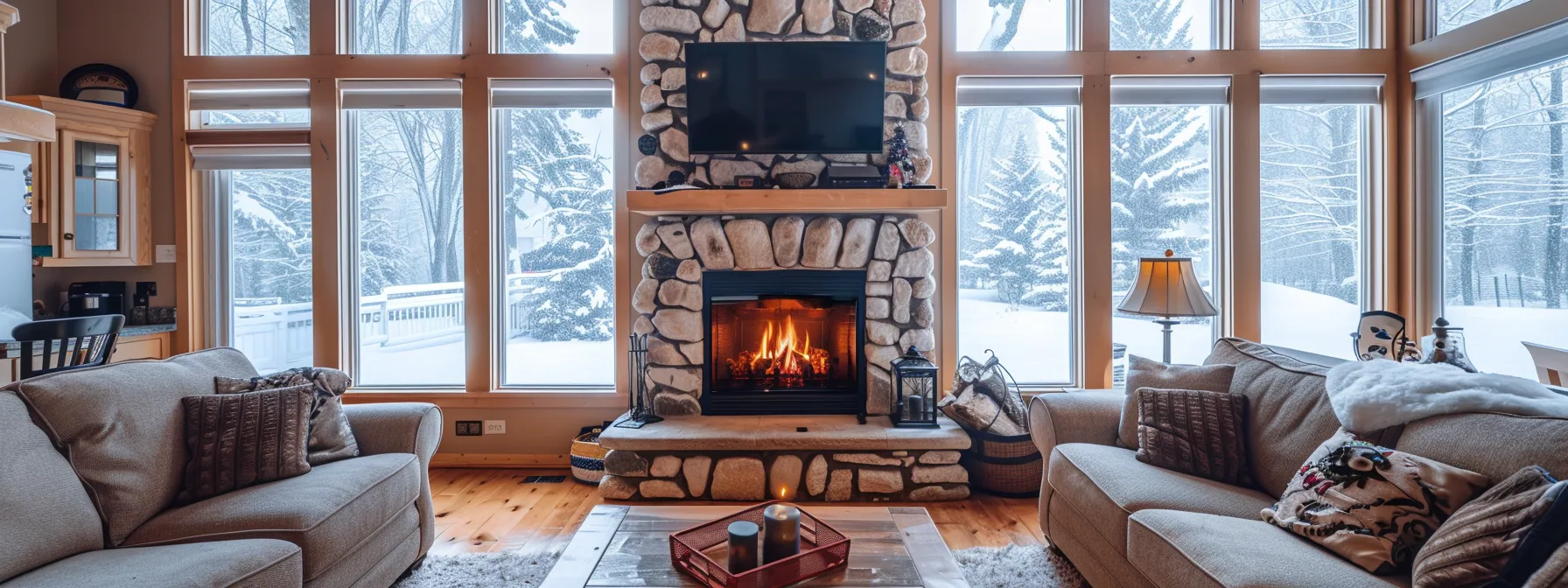Is this a good time to purchase a home? This question plagues many potential buyers in today’s fluctuating market. Our guide will examine how seasons affect housing prices, availability, and competition. You’ll learn the pros and cons of buying in each season, from spring’s increased inventory to winter’s potential bargains. We’ll also discuss how personal factors, like your financial situation and the Federal Reserve’s policies, impact the best time for you to buy. By the end, you’ll have the knowledge to make an informed decision on when to start your home search.
Key Takeaways
- Seasonal changes in weather significantly impact housing market trends and buyer behavior
- Spring and summer typically have higher prices and competition, while fall and winter offer better deals
- Personal financial readiness and individual timelines are crucial factors in determining the best time to buy
- Winter home buying presents unique challenges but can offer advantages like reduced competition and motivated sellers
- Understanding market conditions helps buyers make informed decisions aligned with their personal circumstances and financial capabilities
Understanding the Impact of Seasons on the Housing Market

The housing market undergoes significant changes throughout the year, affecting home prices, inventory, and buyer behavior. Weather plays a crucial role in shaping these trends, influencing both sales and mortgage activity. Understanding these seasonal patterns can help first-time buyers identify the best time to purchase a home and potentially save money. This section explores how weather impacts the market, seasonal price fluctuations, and inventory variations throughout the year.
How Weather Influences Buyer and Seller Behavior
Weather significantly impacts buyer and seller behavior in the housing market, influencing both demand and supply. During warmer months, potential buyers are more likely to actively search for homes, resulting in increased competition and potentially higher prices. Sellers often list their properties during spring and summer to capitalize on this heightened interest. However, savvy buyers with good credit scores can find opportunities in cooler seasons when there’s less competition. Lenders may offer more favorable terms during slower periods, and buyers working within a budget might secure better deals on payments. It’s important to note that programs like Fannie Mae’s HomeReady can provide additional support for qualified buyers throughout the year.
Seasonal Trends in Home Prices
Home prices exhibit distinct seasonal trends, influenced by factors such as employment rates, debt levels, and interest rates set by the Federal Reserve Bank of New York. Typically, prices peak during summer months when demand is highest, while winter sees lower prices due to reduced buyer activity. Mortgage lenders often adjust their offerings based on these seasonal patterns, potentially affecting loan terms and availability. Understanding these fluctuations can help buyers time their purchases strategically:
- Spring: Prices begin to rise as inventory increases
- Summer: Peak prices and highest competition among buyers
- Fall: Prices start to decline as market activity slows
- Winter: Lowest prices and potential for better deals
Inventory Changes Throughout the Year
Housing inventory fluctuates throughout the year, affecting buyer options and market dynamics. Spring and summer typically see an increase in available homes, offering more choices for buyers with good credit scores. However, this abundance often leads to higher prices and increased competition. In contrast, winter months generally have lower inventory but may present opportunities for savvy buyers to negotiate better deals and potentially lower annual percentage rates. Economic factors, tax considerations, and local market conditions also influence inventory levels, making it crucial for potential homeowners to assess whether it’s a good time to purchase a home based on their individual circumstances and financial readiness.
Advantages of Buying a House in Spring

Spring offers distinct advantages for homebuyers, including increased inventory and competitive markets. This season presents opportunities for those wondering if now is a good time to purchase a home. Buyers can leverage the expanded options while navigating the heightened competition. Working with a real estate agent can help mitigate risks and develop strategies to stand out among other buyers, potentially even in cash-offer scenarios.
Benefits of Increased Inventory
Spring’s increased inventory offers significant benefits for homebuyers, including greater selection and potential cost savings. The surge in available properties allows buyers to explore a wider range of options, potentially finding homes that better match their needs and investment goals. This increased supply can also lead to more competitive pricing, benefiting those seeking VA loans or considering refinancing. However, higher demand during this season may impact costs, so buyers should be prepared to act swiftly when they find suitable properties:
- Wider selection of properties
- Potential for better pricing due to increased competition
- Opportunities for VA loan applicants
- Possibility of finding properties suited for investment or refinancing
- Need for quick decision-making due to higher demand
Navigating Competitive Markets
Navigating competitive spring markets requires strategic planning and swift action. Buyers must balance the increased supply with heightened demand, often facing multiple offers and rising prices. Those considering whether now is a good time to invest in real estate should weigh the potential for appreciation against higher interest rates and fierce competition. Renting may be a viable alternative for those unprepared to compete in this market, allowing time to build savings and improve credit scores for future purchases.
Strategies to Stand Out Among Buyers
To stand out among buyers in the competitive spring market, savvy house hunters should employ strategic tactics. The National Association of Realtors suggests getting pre-approved for a mortgage to demonstrate financial readiness. Buyers should also consider offering above-asking prices or waiving certain contingencies, while being mindful of potential inflation impacts. Understanding when the best time to purchase a home aligns with personal financial goals can give buyers an edge. Additionally, being prepared to cover extra fees or offering a larger down payment can make an offer more attractive to sellers, potentially leading to success in securing the best deal during this prime buying season.
Pros and Cons of Purchasing in Summer

Summer presents unique opportunities and challenges for homebuyers in the United States. This section examines housing market dynamics during peak season, strategies for navigating high demand periods, and effective negotiation tactics. Despite potential recession concerns, summer remains a popular time for home purchases, with estate agents playing a crucial role in guiding buyers through the competitive landscape.
Analyzing Housing Market Dynamics in Summer
Summer housing market dynamics present unique challenges and opportunities for buyers. The federal funds rate often influences mortgage rates, affecting affordability and potential equity gains. Real estate prices typically peak during this season, potentially straining savings accounts. However, the increased inventory allows buyers to explore diverse options, potentially finding properties that align with their long-term financial goals. Savvy buyers can leverage market knowledge to navigate these dynamics effectively, balancing the higher prices against the potential for long-term appreciation in a robust summer market.
Dealing With High Demand Periods
Dealing with high demand periods in summer requires strategic planning for first-time buyers seeking the best mortgage options. As inventory tightens and median prices rise, buyers must act quickly and decisively. Securing a pre-approved loan can give buyers an edge in competitive bidding situations. While summer may not always be the best time to invest in real estate due to higher prices, it offers opportunities for those prepared to navigate the market effectively:
| Summer Market Factors | Buyer Strategies |
|---|---|
| High demand | Get pre-approved for a mortgage |
| Limited inventory | Act quickly on desirable properties |
| Rising median prices | Consider flexible offer terms |
| Competitive bidding | Work with an experienced real estate agent |
Tips for Negotiating During Peak Season
Negotiating during peak summer season requires strategic approaches to secure favorable terms. Buyers should research comparable properties to determine fair market value and consider offering a larger down payment to strengthen their position. In California, where markets can be particularly competitive, consumers may need to act swiftly while still ensuring adequate home insurance coverage. Flexibility on closing dates or waiving certain contingencies can make an offer more attractive to sellers, potentially offsetting higher property prices during this busy period.
Benefits of House Hunting in Fall

Fall offers unique advantages for home buyers, including motivated sellers, better deals, and market slowdowns. The National Association of Home Builders notes that economic growth often slows during this season, creating opportunities for savvy buyers. Economists suggest that fall can be an optimal time to purchase, with potential savings on both property prices and insurance costs. This section explores strategies for capitalizing on these autumn market conditions.
Taking Advantage of Motivated Sellers
Fall presents a unique opportunity for buyers to capitalize on motivated sellers. As the market slows, sellers who haven’t closed deals during the peak summer season may be more willing to negotiate. This can lead to better prices and terms for buyers, especially those with strong credit scores. Sellers often aim to complete transactions before the holiday season, creating a sense of urgency that buyers can leverage. The following table illustrates key advantages of fall home buying:
| Fall Buying Advantage | Benefit to Buyer |
|---|---|
| Motivated sellers | Increased willingness to negotiate |
| End-of-year deadlines | Potential for faster closing processes |
| Less competition | More time to make informed decisions |
| Price reductions | Opportunity for better deals |
Opportunities for Better Deals
Fall offers significant opportunities for better deals in the housing market. As the peak buying season winds down, sellers often become more motivated to close transactions before winter, leading to potential price reductions. Buyers with strong credit scores can leverage this situation to negotiate favorable terms, including lower purchase prices or additional concessions. Key factors contributing to better deals in fall include:
- Reduced competition from other buyers
- Sellers’ desire to close before year-end
- Potential for price reductions on lingering listings
- More flexibility in negotiating terms and conditions
- Opportunity to capitalize on end-of-year sales targets for real estate agents
Making the Most of End-of-Year Market Slowdowns
End-of-year market slowdowns present strategic opportunities for savvy homebuyers. As the year winds down, sellers often become more flexible in negotiations, potentially leading to better deals. Buyers can leverage this period to secure favorable terms, including lower prices or additional concessions. Real estate professionals may be more eager to close deals before year-end, creating a buyer-friendly environment that can result in significant savings.
Why Winter Might Be the Ideal Time to Buy

Winter offers unique advantages for homebuyers, including reduced competition and potential for lower prices. This section explores strategies for overcoming winter home buying challenges and provides tips for successful purchases during this season. Buyers can leverage the slower market to negotiate better deals and potentially find motivated sellers eager to close before year-end.
Reduced Competition and Lower Prices
Winter presents a unique opportunity for homebuyers, offering reduced competition and potentially lower prices. With fewer buyers in the market, sellers may be more willing to negotiate, leading to better deals. This seasonal advantage allows buyers to take their time when viewing properties and making decisions, potentially resulting in significant savings. The following table illustrates the key benefits of winter home buying:
| Winter Buying Advantage | Benefit to Buyer |
|---|---|
| Less competition | More negotiating power |
| Motivated sellers | Potential for price reductions |
| Slower market pace | More time for decision-making |
| Year-end financial incentives | Possible tax benefits |
Overcoming Challenges of Winter Home Buying
Winter home buying presents unique challenges, but savvy buyers can turn these into advantages. Limited daylight hours and potentially harsh weather conditions may restrict property viewing opportunities, necessitating flexible scheduling and thorough preparation. Buyers should prioritize properties with recent updates or renovations to mitigate concerns about hidden issues masked by snow or cold weather. Additionally, working with experienced real estate professionals familiar with winter market dynamics can help navigate seasonal complexities effectively:
| Winter Challenge | Solution |
|---|---|
| Limited daylight for viewings | Schedule flexible viewing times, use virtual tours |
| Weather-related property issues | Focus on recently updated or renovated properties |
| Reduced inventory | Work with experienced agents to access off-market listings |
| Slower transaction processes | Plan for extended timelines, maintain open communication |
Tips for a Successful Winter Purchase
Successful winter home purchases require strategic planning and execution. Buyers should prioritize properties with recent inspections to mitigate weather-related concerns and leverage the slower market to negotiate favorable terms. Working with experienced real estate professionals familiar with winter market dynamics can provide valuable insights and access to off-market listings. Buyers should also be prepared for potentially longer transaction timelines due to holiday schedules and weather-related delays:
| Winter Buying Strategy | Implementation |
|---|---|
| Property selection | Focus on homes with recent inspections |
| Negotiation | Leverage slower market for better terms |
| Professional guidance | Work with winter-savvy real estate agents |
| Timeline management | Plan for potential delays in closing process |
Personal Factors Influencing the Best Time to Buy

While seasonal trends impact the housing market, personal factors play a crucial role in determining the best time to buy a house. This section explores key considerations: assessing financial readiness, aligning purchases with personal timelines, and understanding how market conditions affect individual buyers. These factors help potential homeowners make informed decisions tailored to their unique circumstances.
Assessing Your Financial Readiness
Assessing financial readiness is crucial before entering the housing market. Potential buyers should evaluate their credit scores, savings, and debt-to-income ratios to determine their purchasing power. Lenders typically require a minimum credit score and a stable income history. Buyers should also consider additional costs beyond the home price, including:
- Down payment
- Closing costs
- Property taxes
- Homeowners insurance
- Maintenance and repairs
Aligning Home Buying With Your Personal Timeline
Aligning home buying with personal timelines requires careful consideration of life events and financial goals. Buyers should assess their current living situation, job stability, and future plans to determine the optimal time for purchase. Factors such as upcoming job relocations, family planning, or anticipated changes in income can significantly impact the decision-making process. Prospective homeowners must balance market conditions with their personal readiness to ensure a successful and sustainable investment.
Understanding How Market Conditions Affect You
Market conditions significantly impact individual home buyers, affecting affordability, competition, and negotiation power. Rising interest rates can reduce purchasing power, while low inventory may intensify competition among buyers. Conversely, economic downturns might present opportunities for buyers with stable finances to secure better deals. Understanding these dynamics helps buyers make informed decisions, potentially timing their purchases to align with favorable market conditions that suit their personal circumstances and financial capabilities.
Conclusion
Understanding seasonal trends in the housing market empowers buyers to make informed decisions and potentially secure better deals. While spring and summer offer increased inventory, fall and winter present opportunities for reduced competition and motivated sellers. Personal factors, including financial readiness and individual timelines, play a crucial role in determining the optimal time to purchase a home. By considering both market conditions and personal circumstances, prospective homeowners can strategically time their purchases to align with their goals and maximize their investment potential.

